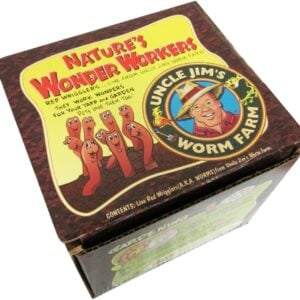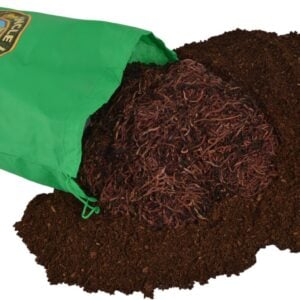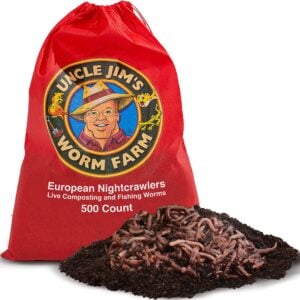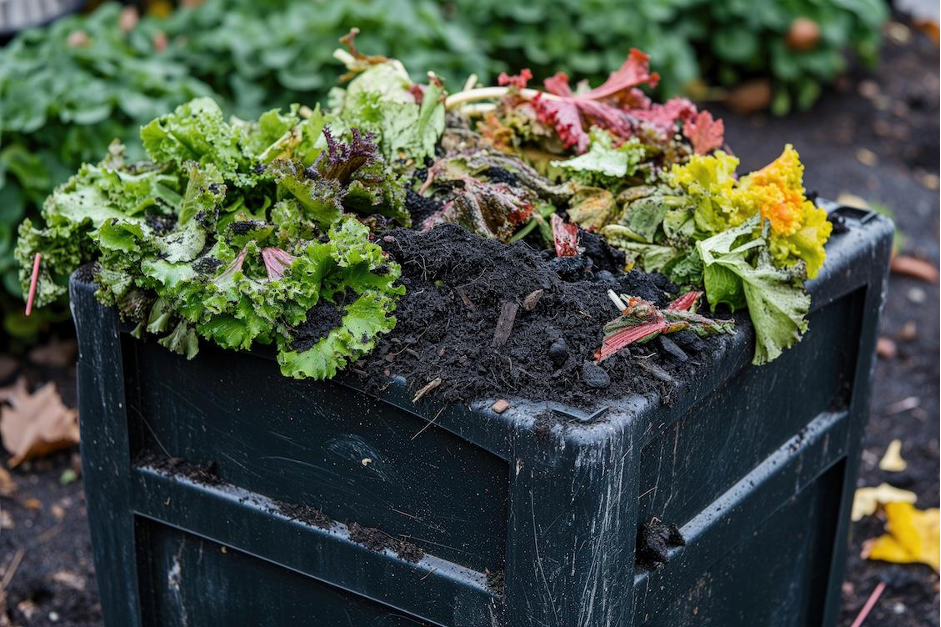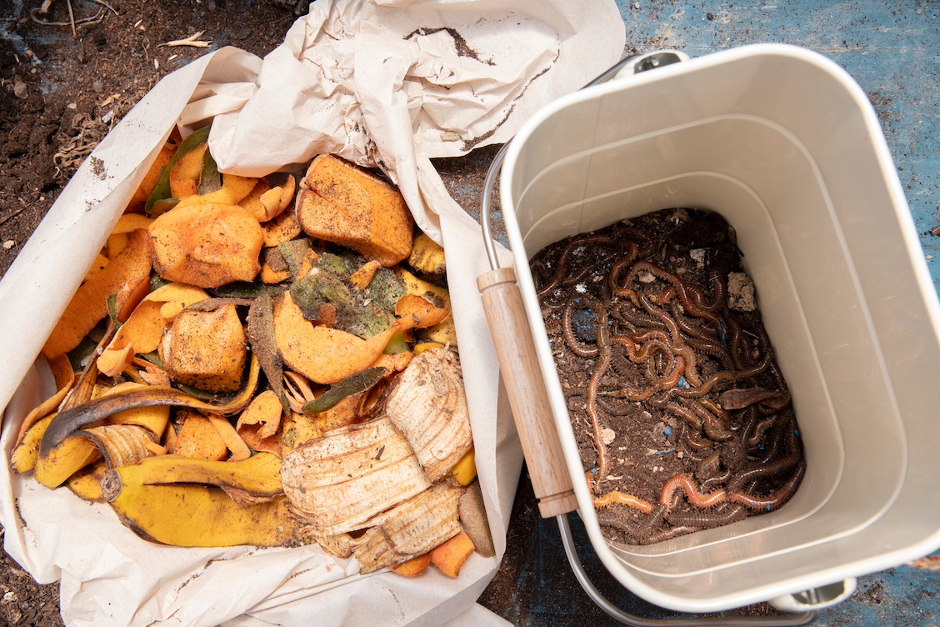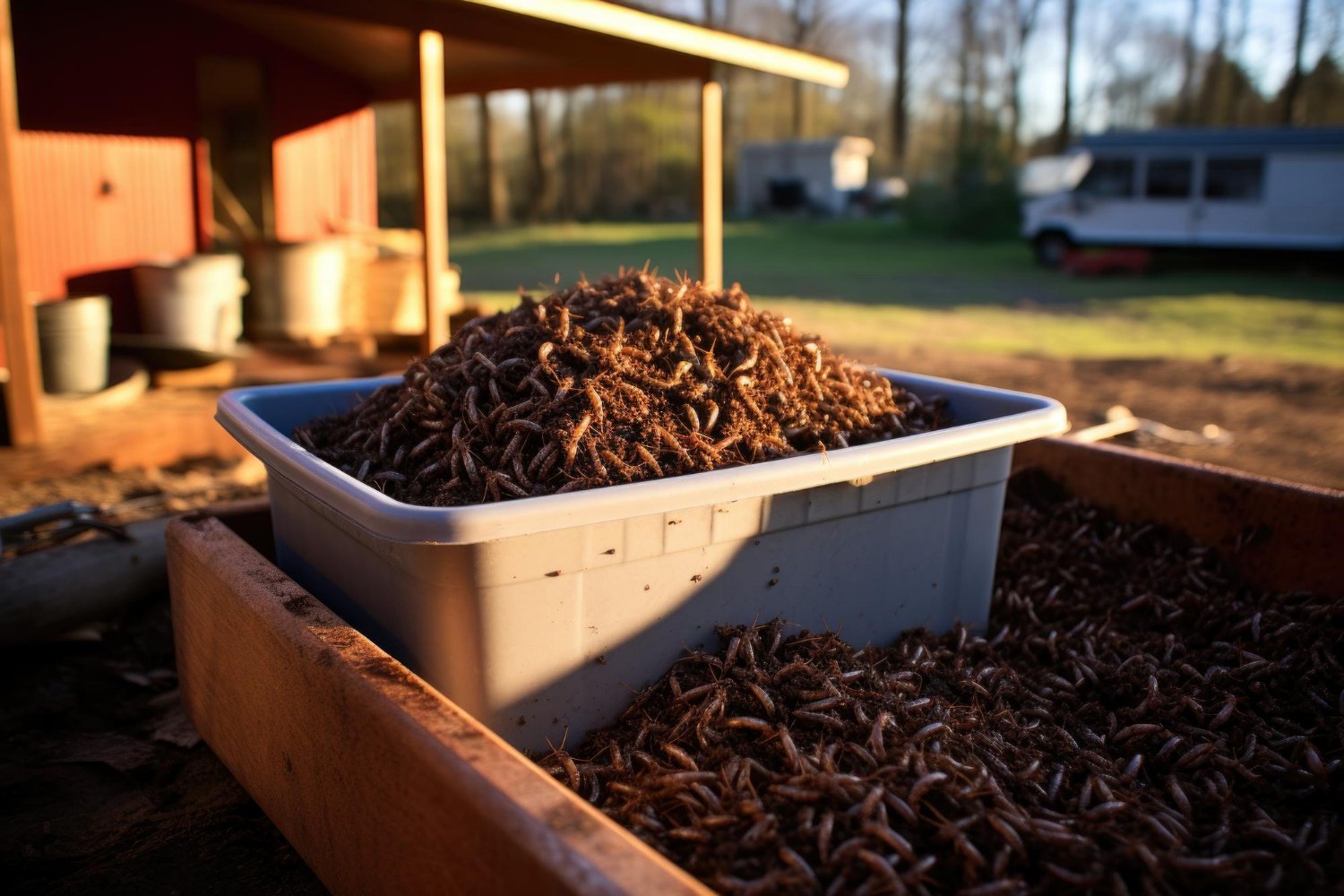Worms in a vermicomposting bin sometimes try to escape. If it’s just one or two adventurous worms, you don’t have much to worry about. However, if you see worms clumping near the top of the bin, at the air ducts, or climbing out, something may be amiss. Let’s find out why composting worms try to escape and what you can do about it.
Note: Worms are sensitive to the weather. If a low-pressure system or thunderstorm is moving in, the worms might start clumping and climbing. Watch for a while and see if this is the pattern. If so, do not worry.
Need…Gasp…Oxygen
Worms breathe through their skins. If they don’t have enough air, they will try to leave the bin. Lack of oxygen could be caused by:
- Overfeeding: To check for overfeeding, dig around. Is there a lot of undigested food in the bin? You can take some out. Wait until they have worked through most of the food in the bin before adding more. If you have excess scraps, you can freeze them until later.
- Poor bin design: Your worm bin should have a lid. Keeping the lid on discourages escapees. A poorly designed bin might not have good drainage. Maybe it doesn’t have enough air holes, or the holes are blocked. We’ve even seen shallow homemade worm bins set right out in the open with no lid, and of course, the worms made a break for it! Build a solid bin yourself, or try one of our tray-based composters.
- Insufficient ventilation: Any compost bin can get its air holes clogged with debris or objects surrounding it. Check for this and open up the air passages.
- Material dumped on top them: When introducing worms to the bin, place them on top of the bedding. Let them dig their own way in. They build little tunnels that provide oxygen. Dumping lots of bedding directly on worms can smother them.
Excess Moisture
If the bin is too wet, your worms will start to drown. They may try to crawl away from the danger. This is also bad for composting and can stink up the bin. Excess mold and even mildew can grow – yuck!
The worm bedding should have the consistency of a wrung-out sponge. Squeeze some bedding in your hand to check. If water comes out, your bin is too wet.
The cure for a wet bin is to add dry bedding. Shredded newspaper is perfect; so is peat moss, coconut coir and shredded cardboard. Add and stir gently.
To help prevent moisture problems, keep the lid on, especially when it rains. Don’t add too much wet, sloppy foods like melon or left-over fruit smoothies.
If the bin is wet beyond repair, you might need to harvest your worm castings (fertilizer), isolate your worms from most of their bedding, and start over with fresh bedding.
Recent Change
If you like detective work, look at any recent change you’ve made that might be causing the problem. New environment? New bedding? New foods? If possible, reverse the recent change and see if the worms go back to normal.
If the worms are in escape mode, avoid nitrogen-rich foods, which include grass clippings. Also, avoid acidic foods (tomatoes, onions, pineapples, excessive coffee grounds, tea bags, citrus), and don’t add too much white paper, which contains bleach.
Sometimes people forget to feed their worms. Starvation will drive the worms to greener pastures. When you go on vacation, save up scraps in the fridge or freezer. Ask a friend to feed the worms twice a week or so. Maybe you’re eating out a lot and aren’t generating any kitchen scraps. Enlist a neighbor to save their kitchen scraps for you, and save leftover salads (wash off the dressing). Keep the worms fed until you’re back in the kitchen.
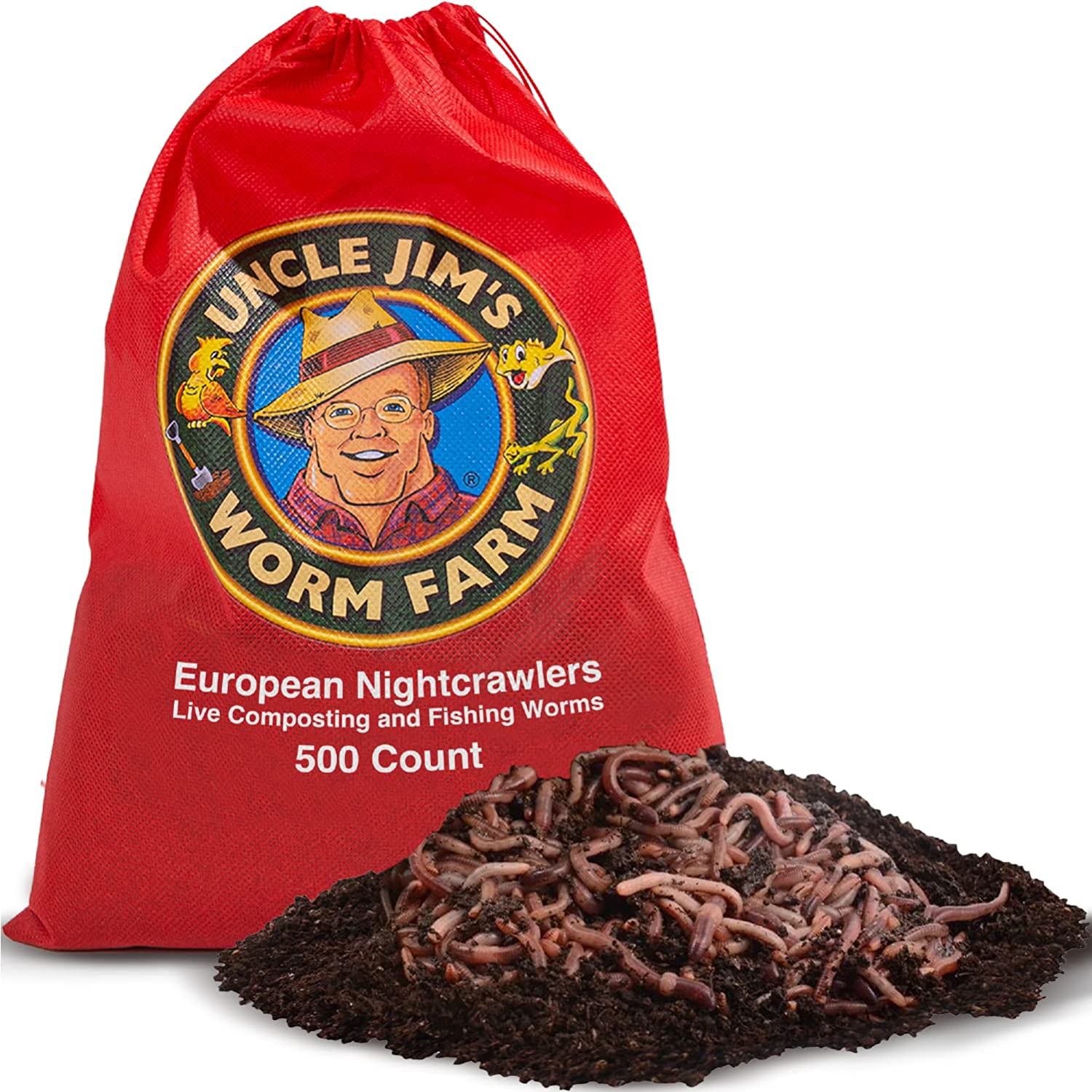
The pH of the Worm Bin
Most compost owners don’t need to go to the trouble of actually measuring the pH of their worm bin. If you have a pH probe handy, measure it and aim for neutral pH of 7. Adding some crushed eggshells helps lower the pH and adds grit that helps the worm digest the food. Acidic, oily or salty foods like potato chips and large amounts of tomatoes can throw off the pH.
New Baby Worms
When the worms reproduce, hundreds or even thousands of baby worms hatch. The adults might feel crowded and try to leave. You can just ignore the problem, and the population will balance itself. Or, scoop up the “volunteers” who are hanging around the sides and top of the bin, and start a new bin.
Maybe a friend would like to start composting and would love a bucketful of worms for their birthday. Red composting worms are also great to use as fishing bait, so you can gift them to a friend who loves going on fishing trips.
Worms Might Be Sick – Maintain a Healthy Worm Bin
Worm health is an essential factor to consider when you’re composting with worms. If your composting worms are trying to escape, it could mean they aren’t healthy. Here are some common factors that can affect worm health:
- Temperature: Composting worms prefer temperatures between 55-77°F. If the temperature is too hot or too cold, it can stress out the worms, and they may try to escape. Keep your worm bin in a place where the temperature is stable and within the ideal range.
- Moisture: Worms breathe through their skin, so they need a moist environment to survive. If the bedding is too dry, it can cause the worms to dry out, which can be deadly. Conversely, if the bedding is too wet, it can lead to anaerobic conditions, harming the worms. Make sure to keep the bedding moist but not soaking wet.
- pH Level: Composting worms prefer a neutral pH between 6.5 and 7.5. If the pH level in the worm bin is too acidic or alkaline, it can be bad for the worms’ health. You can test the pH level using a pH test kit and adjust it using materials such as crushed eggshells, lime, or dolomite.
- Overfeeding: A buildup of uneaten food can attract pests and cause odors. It can also cause the worm bin to become too acidic or alkaline, harming the worms’ health. Make sure to feed the worms small amounts of food regularly and avoid feeding them citrus fruits, onions, or meat.
By paying attention to these factors and ensuring that your composting worms have a healthy environment, you can prevent them from trying to escape and ensure a thriving worm bin.
Quick Fix: Turn On a Light
Maybe your worms charge at the lid whenever you try to feed them. If you’re trying some of the ideas above, you can keep the worms under your thumb by simply turning on a light. This video demonstrates that light starts working immediately. The 3-minute video also has some reasons why your worms might be escaping.
How to Stop Worms from Escaping the Compost Bin
You can also put some dry bedding on the top. This will discourage worms from climbing up. Just make sure not to suffocate them.
Adjust Your Worm Bin
If worms escaping is really a problem, making adjustments to your worm bin should help. Implementing all the tips we mentioned above should help you determine why worms are trying to get out and how to stop them. And if you’ve lost a large number of your worms, you can always order more from us!
At Uncle Jim’s Worm Farm, we have been cultivating worms for more than 40 years. We grow our own composting worms and even carry a line of tray-based composters, perfect indoors or out. We carry all the equipment you need for creating your worm farm and keeping your worm bins healthy and worms happy. So, don’t wait – browse our website to find everything you need for a successful vermicomposting journey!


